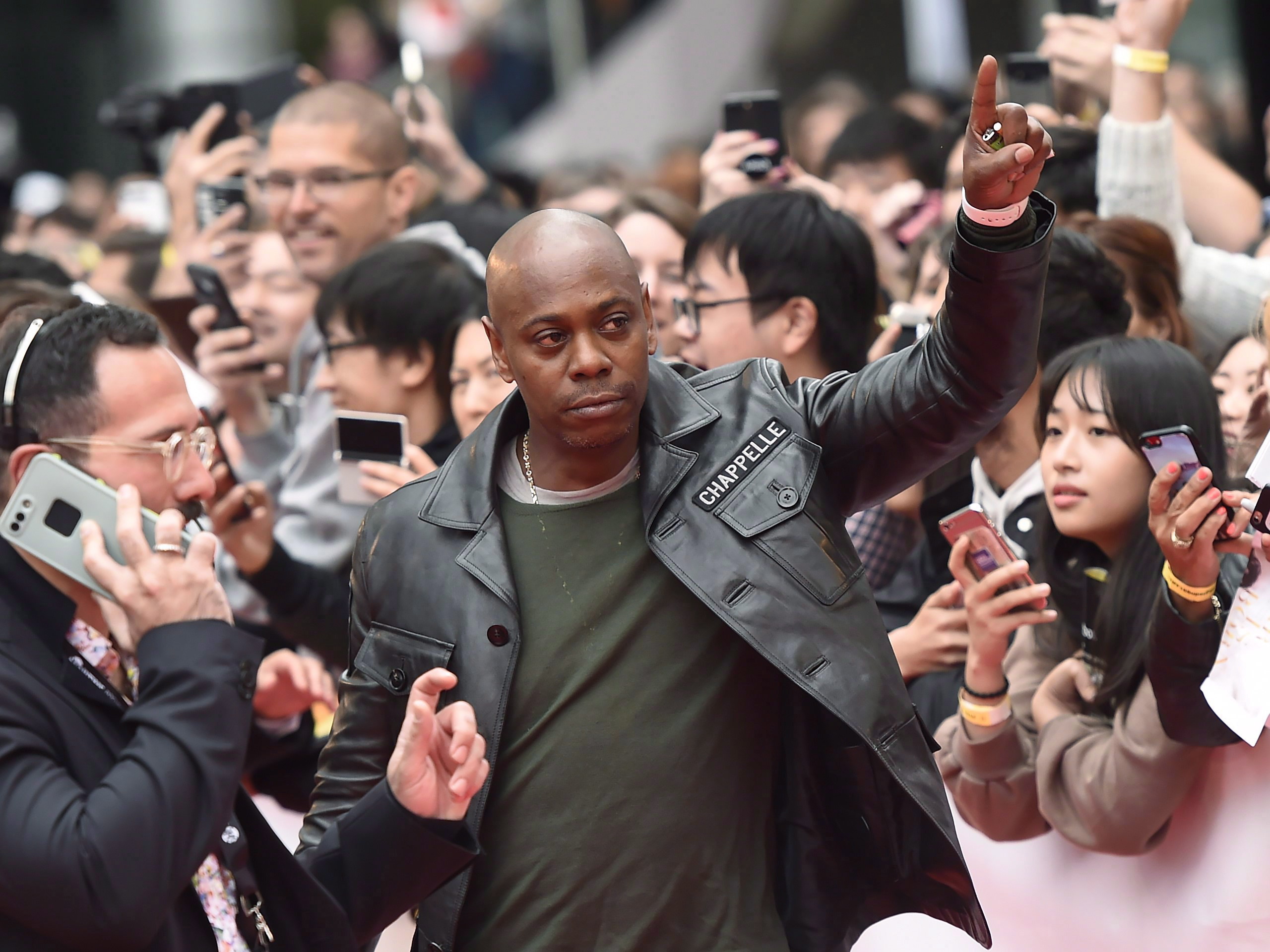Another Dave Chappelle special, another onslaught of blatant homophobia and transphobia.
The veteran comedian’s ninth full-length comedy special, The Closer, premiered on Netflix on Tuesday, and it’s already garnering attention for Chappelle’s brutal homophobic and transphobic jokes.
In the special, Chappelle proudly declares he is “team TERF”—referring to trans-exclusionary radical so-called feminists—and makes comments about trans women’s bodies and AIDS, in addition to blaming the LGBTQ2S+ community for ruining comedy careers.
The comedian also defends noted transphobe J.K. Rowling, claiming “gender is a fact” and he agrees with her.
LGBTQ2S+ people and allies took to social media this week to slam the latest special and Netflix’s decision to air the show on its platform.
The Human Rights Campaign (HRC) even called out the harmful material.
It’s not the first time Chappelle’s take on LGBTQ2S+ issues has drawn ire. His two 2017 Netflix specials, The Age of Spin and Deep in the Heart of Texas, were slammed for their flip remarks about queer and trans people. But in The Closer, he spends the majority of the special’s air time digging into gender and sexuality.
Throughout the special, Chappelle creates a binary between oppression faced by Black people and LGBTQ2S+ people.
“Any of you who have ever watched me know that I have never had a problem with transgender people,” the comedian says. “If you listen to what I’m saying, clearly, my problem has always been with white people.”
He then accuses the LGBTQ2S+ community of “punching down” on the Black community by “cancelling” figures like rapper DaBaby, who drew controversy this summer for homophobic remarks at one of his concerts.
But in constructing his straw-trans argument, many social media users pointed out that Chappelle also seems to forget that Black queer and trans people exist—and that they actually face the majority of violence and oppression.
Last year was the most violent on record in terms of murders of trans and gender nonconforming people, with the majority of deaths being Black and Latinx trans women, according to the HRC. In a recent report, the HRC says 2021 is on track to match or top that level of violence.
They’re not just jokes. Normalizing violence against trans women, objectification of trans bodies and homophobia perpetuates real-life violence against queer and trans people.
At the end of The Closer, Chappelle claims he’s done with jokes about the LGBTQ2S+ community. But many critics have pointed out that that’s hard to take seriously considering his track record.
“It’s hard for people to trust that you respect the queer community when you announce that you’re ‘team TERF,’ make a point to mix up the letters in ‘LGBTQ,’ and pepper your work with the slurs your peers have largely hung up when the reason you offer for easing off of those kinds of jokes in the future is that you don’t want to go out like J.K. Rowling, DaBaby, or Kevin Hart,” Craig Jenkins wrote in Vulture.
Chappelle says this special, his sixth as part of a deal with Netflix, will be his last for a while.
And for a palate cleanser, here’s comedian James Acaster taking down transphobic comedians in two quick minutes. Because really, it shouldn’t be that hard to not be a transphobic.


 Why you can trust Xtra
Why you can trust Xtra


